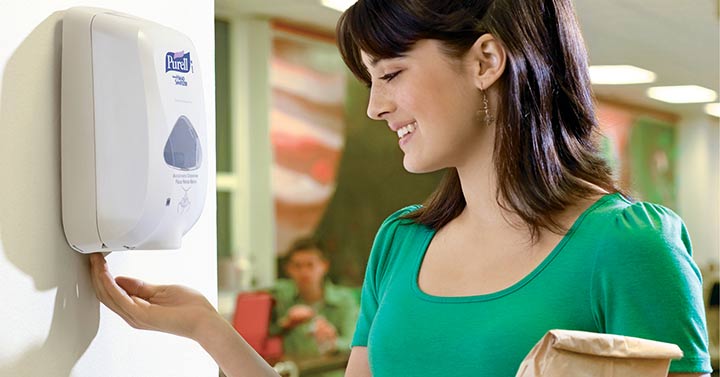Waterless hand sanitizing gels such as the ones shown can kill 99.9 percent of the most common germs that cause illness.
With the cold and flu season in full swing, health-minded individuals should pay attention to washing their hands on a regular basis. According to the Centers for Disease Control and Prevention (CDC), having clean hands is the single most important measure people can take to help prevent getting a cold, the flu, or other threatening viruses.
Studies have shown that 40 percent of women and 58 percent of men do not routinely wash their hands—including after using restroom facilities. Moreover, health studies have shown that cold and flu germs are able to survive on and be transferred from many commonly touched surfaces for up to 48 hours. Some are obvious, like door handles, phones, and computer keyboards. But others tend to be less apparent, like elevator buttons, cafeteria tables, and debit card keypads.
When soap and water are not available, medical experts recommend that waterless hand sanitizing gels or wipes, such as Purell® products, be used, as they can kill 99.9 percent of the most common germs that cause illness.
For hand washing to be truly effective, the CDC says it must be done for at least 20 seconds and involve a thorough cleaning of the front and back of the hands, as well as the areas between fingers and under the nails.
Since many cold and flu germs can linger on bathroom or kitchen faucets, cleanliness experts generally recommend using paper towels to act as a barrier to turn on knobs, and, similarly, activating bathroom hand dryers with paper or even elbows. In fact, it’s because of such concerns that companies like UniFirst are now finding a surging demand for motion-activated, hands-free soap dispensers and touch-free faucets.
As experts at the Mayo Clinic point out, hand washing doesn’t take much time or effort, but it certainly offers great rewards in terms of preventing illness—particularly, they would likely add, when it comes to enjoying a sneeze-free cold and flu season!
Further reading: Clean Hands Save Lives, CDC

